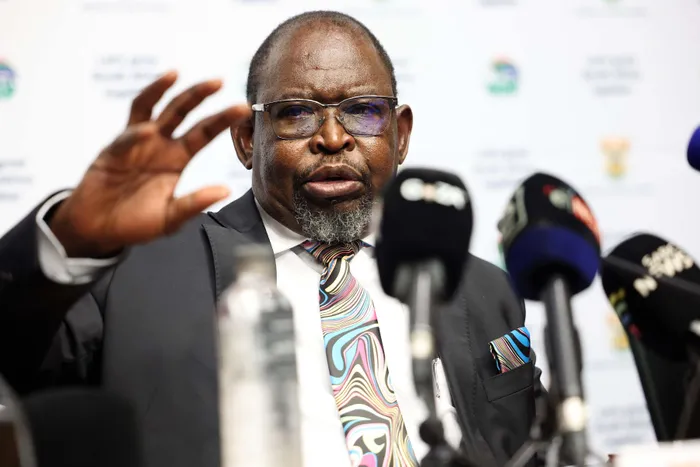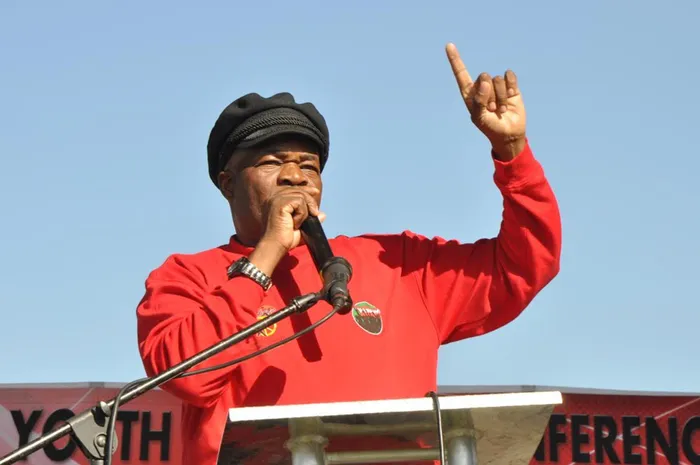Cosatu: Budget marks turning point in SA's democracy
COSATU

Finance Minister Enoch Godondwana admits the budget process has been 'messy'.
Image: GCIS
The 2025/26 Budget marks a turning point in South Africa’s young democracy. It is up to us whether this is for the better or worse.
The processes to pass the Budget are messy but we should not lose sight of the positive signs of a government that listens and is willing to adapt when society demands change.
Cosatu has opposed taxes such as a VAT hike as these would make the lives of working-class families already struggling to cope with the rising costs of living, supporting unemployed relatives, drowning in debt and battling to make ends; even more difficult.
We are pleased government humbled itself and heeded the cries of society to withdraw the proposed VAT hike. That is a moment to be applauded.
We remain a society with deep socio-economic crises from a 41.9% unemployment and a youth unemployment rate of 70%, to entrenched poverty and inequality, endemic crime and corruption, embattled public and municipal services and State-Owned Enterprises. These are exacerbated by tepid 1% economic growth placing the fiscus under severe pressure.
These are the ticking time bombs government and Parliament must be seized with and seen to be resolving. Society is correct to be impatient and hold government to high standards. Mediocrity and complacency should no longer be normalised.
Cosatu’s disagreements with government over the Budget’s role over the years have been that we believe Treasury has been far too conservative in how the budget needs to be utilised to capacitate the state to deliver the public services the working class and businesses depend upon, to stimulate economic growth and create decent jobs.
We disagree with the narrow interpretation of the Budget as a balance sheet that must be measured by the deficit and debt to GDP ratios alone. Yes, these are important, but they can only be sustainably addressed when the economy grows and it creates the jobs and revenues that society and the state depend upon. The Budget is key to unlocking economic growth.
In the midst of the VAT debate, commentators have missed the critical call of the Minister for Finance, Mr. Enoch Godongwana, to be allowed to exit the austerity budget cuts that have weakened, even crippled, the state’s ability to deliver the quality public services that the working-class needs in order to escape the shackles of poverty and inequality.
As Treasury revises the Fiscal Framework and its supporting expenditure allocations, it must avoid the dangerous temptation to abandon the many progressive allocations to rebuild public services, stimulate economic growth and protect the poor.
In particular, it is critical to retain substantial allocations to rebuilding health and education; filling frontline posts such as doctors, nurses, teachers and police officers; and honouring the wage agreement to protect and retain skilled public servants. This includes investing in the economic infrastructure key to unlocking growth such as electricity, water, roads, rail and ports. These are fundamental to taking economic growth to the 3% growth needed to create jobs.
As we remove obstacles impeding economic growth, the budget must be biased towards uplifting working-class communities. This means protecting the above inflation increases giving relief to 19 million social grant recipients and to provide similar protection for the 8 million SRD Grant recipients. It requires not only to retain the progressive increases for public employment programmes providing a path to finding permanent jobs for 12 million unemployed, but in fact to drastically ramp them up.
The Budget debate provides a unique opportunity for society to interrogate what expenditure is needed and what is not, to overhaul the tax regime to make sure it protects those who earn the least and ensures that those who earn the most pay their fair share. This should not be the sole responsibility of Treasury but in fact one that all citizens take ownership of.
Once the relevant parliamentary budgetary processes have been concluded, and in the run up to the Medium-Term Budget Policy Statement in November, Treasury with Parliament must initiate such a public engagement. The MTBPS must be used by Treasury to table a raft of revenue and expenditure options for Parliamentarians and the public to consider and to input on what makes sense, which are not acceptable and what tradeoffs are needed.
Our many crises are not new, they have been here for generations. They will not be resolved by a business-as-usual approach nor by minor tinkering. They require us to be clear on the very real threats to the nation and to undertake measures to deal with them in the short and long term.
This means that we need to give SARS the resources it requires to ensure all taxes owed to the state are collected and to deal with those individuals and businesses, including imported and illicit goods, who flout our tax laws. Parliament must hold monthly report back sessions to ensure SARS wins this war.
It means the culture of wastage and corruption in the state must end and be replaced with zero tolerance. No better example can be found than Sweden where a senior Minister resigned after having used publics funds to buy some chocolates.
It requires that we be honest and smart about what resources the state requires to uplift working-class communities and stimulate growth.
There are many good things that government led by the African National Congress over the past 31 years has done, including allocating 61% of the Budget to investments in working-class communities. These must be applauded and defended.
Equally we must be honest about our failures to defeat unemployment, poverty and inequality and how we must repivot the Budget to tackle these as other countries have successfully done from China to Brazil.
This discussion needs to be anchored on what must be done, what is possible and what are the trade offs necessary to achieve them. What we cannot do is to continue upon the path of business as usual and then be shocked when things do not get better.
Solly Phetoe is Cosatu General Secretary.

Solly Phetoe.
Image: File
BUSINESS REPORT